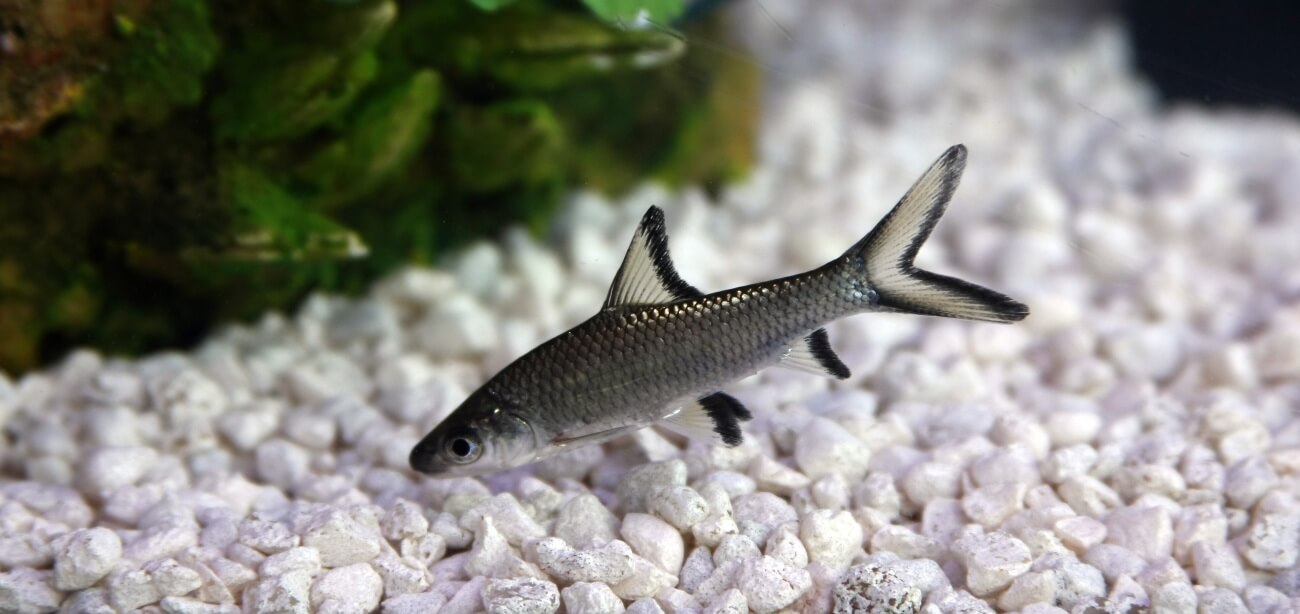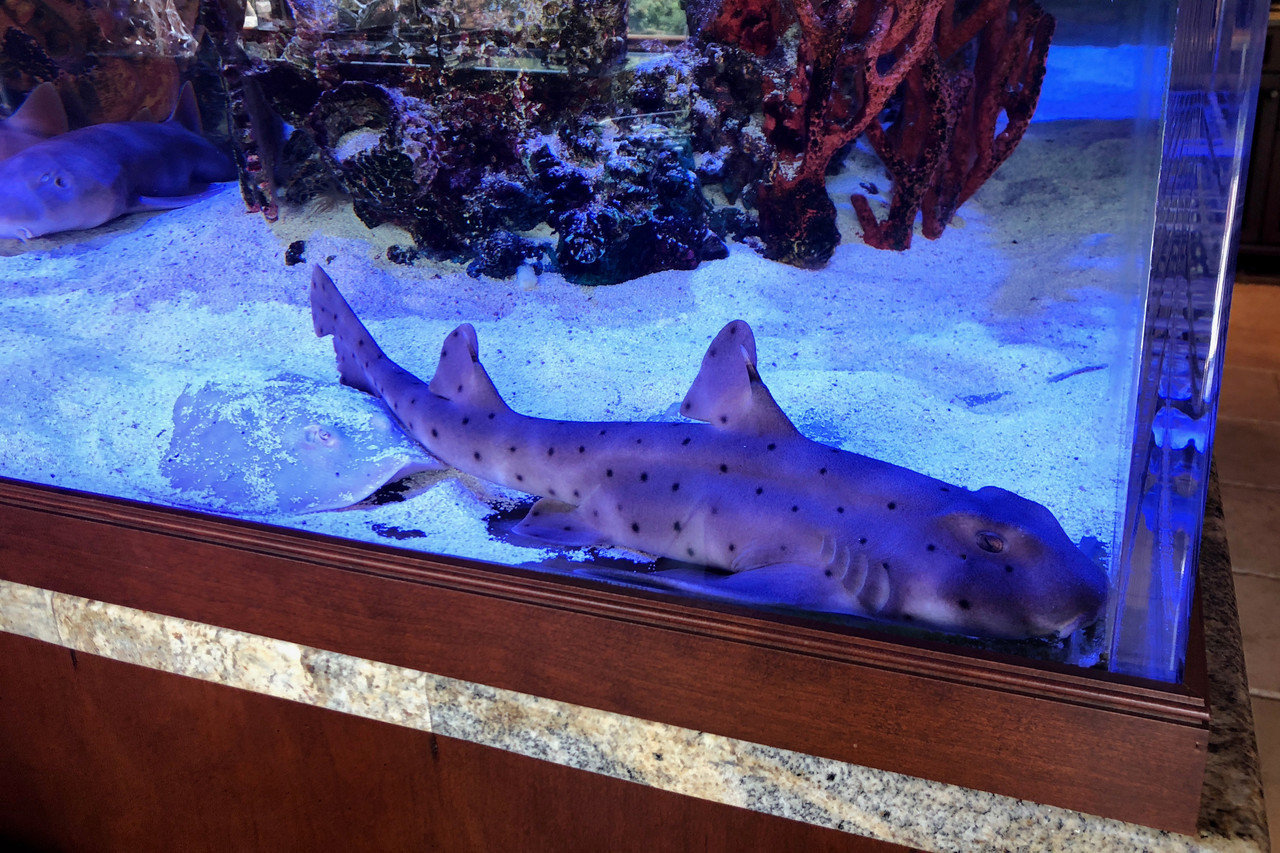The captivating world of pet sharks has captured the imagination of many aquarium enthusiasts. Their sleek bodies, powerful movements, and diverse species spark a sense of wonder and intrigue. However, keeping sharks in a home aquarium presents significant challenges and requires an unwavering commitment to responsible care. This guide explores the suitability of pet sharks for home aquariums, covering aspects like species selection, tank requirements, feeding, and maintenance.

Assessing Suitability: A Shark’s Place in the Home
Sharks are wild animals by nature. They require vast open spaces to roam freely and specific environmental conditions to thrive. The concept of “species-appropriate care” is paramount. Keeping a shark in captivity necessitates a commitment to replicating its natural habitat and addressing its specific needs. Ethical considerations are crucial. Can you provide the necessary care, environment, and resources to ensure the well-being of a pet shark throughout its lifespan?
Exploring Species Options: A Shark for Every Aquarium?
Sharks can be broadly categorized into freshwater and saltwater varieties. Freshwater sharks offer some options, but with limitations. The Chinese dwarf bamboo shark, reaching a maximum length of 30 inches, is a consideration. The Borneo blacktip catshark, at around 24 inches, is another possibility. However, remember, these are still relatively large fish with specific needs.
Saltwater sharks are even less suited for home aquariums. Their larger size demands enormous and expensive tanks. They require precise water parameters, including salinity and temperature, which are difficult to maintain in smaller setups. Their specialized care necessitates expertise beyond that of most hobbyists. Consulting experienced aquarists and shark experts is crucial before considering a saltwater shark.

Designing the Ideal Shark Tank: A Home Away from Home
A spacious and well-maintained aquarium is fundamental for pet sharks. Consider their active swimming and territorial nature. Minimum tank requirements vary by species. For example, a single bamboo shark may require at least a 300-gallon tank. Filtration systems capable of handling the bioload of sharks are essential. Water circulation must be strong enough to mimic ocean currents. Lighting should replicate natural light cycles. Decorations need to be sturdy and provide hiding places for territorial sharks. Water quality parameters, particularly temperature, salinity (for saltwater sharks), and ammonia and nitrate levels, must be constantly monitored and adjusted.
Feeding Strategies: A Shark’s Dietary Needs
Dietary needs vary depending on the shark species. Most require a variety of nutritionally balanced meals. Live foods, such as frozen fish, shrimp, and invertebrates, form the staple diet for most pet sharks. Supplementing with vitamin and mineral supplements helps ensure a complete and balanced diet. Avoid overfeeding, and ensure all sharks in the tank have access to food during feeding times.
Ongoing Care and Maintenance: A Commitment to Shark Welfare
Shark aquariums require ongoing care and maintenance. Regular water changes, tank cleaning, and equipment checks are essential. Water quality parameters need constant monitoring and adjustments. Regular health checks by qualified veterinarians or experienced aquarists are crucial to detect potential health issues. Be prepared for a long-term commitment – sharks can live for decades and require ongoing dedication and responsible care.
Safety Considerations: Living with Sharks in Your Home
Pet sharks pose potential safety hazards. Their sharp teeth and powerful jaws demand respect. Proper handling techniques minimize the risk of injury to both humans and sharks. Establish clear safety protocols for anyone interacting with the aquarium, especially children and visitors. Utilize protective equipment like gloves and thick clothing when handling or performing maintenance on the tank.
The Emotional Toll: Considering the Psychological Well-being of Sharks
Beyond physical well-being, consider the psychological impact of captivity on sharks. Sharks are intelligent creatures with complex social behaviors. Confining them to a limited space can lead to stress and frustration. Research suggests some species may exhibit repetitive swimming patterns or aggression in captivity, indicating potential psychological distress. Responsible aquarists should prioritize the emotional well-being of their animals.
The Environmental Impact: Sourcing Sharks Responsibly
The ethics of acquiring pet sharks cannot be ignored. Many species are threatened due to overfishing and habitat destruction. Ensure your shark originates from a reputable source that practices sustainable breeding and avoids wild capture. Supporting ethical breeding programs helps protect wild populations.

Alternatives to Keeping Pet Sharks: Exploring Responsible Options
If the challenges and ethical considerations of keeping pet sharks are significant, consider alternative options:
- Shark Adoptions: Support sanctuaries and aquariums that rescue sharks and provide them with permanent homes.
- Virtual Reality Aquariums: Immerse yourself in the underwater world through virtual reality experiences featuring sharks in their natural habitats.
- Volunteer Opportunities: Contribute to shark conservation efforts by volunteering with organizations dedicated to protecting these magnificent creatures.
-
Conclusion: A Rewarding yet Challenging Endeavor
Keeping pet sharks in a home aquarium presents a unique challenge and requires a deep understanding of their needs. The vast majority of shark species are simply not suitable for home aquariums due to size requirements, environmental needs, and ethical considerations.
However, for the dedicated and experienced aquarist with the resources to provide a species-appropriate habitat and ongoing care, the rewards can be immense. Witnessing the grace and power of a shark in your home aquarium can be a truly awe-inspiring experience.
The decision to keep pet sharks should never be taken lightly. Prioritize the well-being of the animal by carefully evaluating your ability to meet its needs throughout its lifespan. Responsible aquarium practices and a commitment to ethical sourcing are paramount.

-
Embracing a Broader Perspective: The Future of Shark Conservation
The captivating world of sharks extends far beyond home aquariums. These magnificent creatures play a vital role in maintaining healthy marine ecosystems. Sadly, many shark species face significant threats due to overfishing, habitat destruction, and the shark fin trade.
Supporting shark conservation efforts is crucial to ensure the survival of these apex predators. Consider donating to reputable organizations dedicated to shark research, education, and conservation. Promote responsible fishing practices and advocate for policies that protect shark populations.
By making informed choices and supporting conservation efforts, we can ensure that future generations can continue to appreciate the wonder and importance of sharks in our oceans.
Additional Resources for Further Exploration
- Online Aquarium Forums: Communities like https://forums.reefcentral.com/categories/forum.2/ offer valuable resources and discussions on shark care, tank setups, and responsible aquarium practices.
- Shark Conservation Organizations: Explore the work of organizations like https://www.sharktrust.org/ and https://www.pewtrusts.org/en/topics/oceans dedicated to protecting sharks and their habitats.
- Scientific Articles and Research Papers: Stay up-to-date on the latest scientific research on shark biology, conservation efforts, and the impact of human activities on shark populations.
By delving deeper into these resources, you can gain a comprehensive understanding of the challenges and opportunities related to keeping pet sharks and contribute to the future of shark conservation. Remember, responsible aquarium practices and a commitment to the well-being of these magnificent creatures should always be our top priority.



